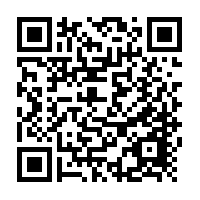Even though emotional intelligence is a relatively new concept its importance cannot be underestimated. Emotional intelligence, to put it as briefly as one could, is directly responsible for our “people skills.” And since we’re all social creatures, it’s always useful to know how to become a better “people person.”
Check out: Can You Really Improve Your Emotional Intelligence?
Listen
Glossary
- rigid – unable to bend or be forced out of shape; not flexible
- grumpy – bad-tempered and sulky
- compassionate – feeling or showing sympathy and concern for others
- notion – a conception of or belief about something
- realm – a field or domain of activity or interest
- turnover – the rate at which employees leave a workforce and are replaced
Think about it
Are the statements below true or false?
- Emotional intelligence is useful in any type of professional context.
- Intelligence in its broadest sense innate and any attempts to improve it are futile.
- There is a large number of people who want to improve their emotional intelligence.
- Emotional intelligence can be effectively enhanced by increasing a person’s self-esteem.
- Preoccupation with failure can be overcome through increasing your EQ.
Practice makes perfect
Fill in the blank spaces with the correct forms of the words in CAPITAL LETTERS.
The bottom line is that some people are just naturally more grumpy, shy, self-centered or ________ SECURITY, while other people are blessed with natural ________ POSITIVE, composure, and people-skills. However, no human behavior is ________ CHANGE. One good piece of news is that EQ _______ TENDENCY to increase with age, even without deliberate interventions. That’s the technical way to say that (most people) ________ MATURITY with age.
Fill in the blank spaces with the correct articles (a/an/the) or leave them blank.
While many ingredients are required for ____ good coaching program, ____ most important aspect of ____ effective EQ-coaching is giving ____ people accurate feedback. ____ [m]ost of us are generally unaware of how ____ others see us — and this especially true for ____ managers. As noted, “it is remarkable how many smart, highly motivated, and apparently responsible people rarely pause to contemplate their own behaviors.”
____ recent meta-analysis shows that ____ relationship between self- and other-ratings of EQ is weak (weaker, even, than for IQ). In other words, we may not have ____ very accurate idea of how smart we are, but our notion of how nice we are is even less accurate. ____ main reason for this blind spot is wishful thinking or overconfidence: it is ____ well-documented (but rarely discussed) fact that, in any domain of ____ competence, ____ most people think they are better than they actually are. Thus any intervention focused on increasing EQ must begin by helping people understand what their real strengths and weaknesses are.
Each sentence in the paragraph below has one mistake. Can you correct them all and explain what’s wrong?
Even a best coach and coaching methods will fail with certain clients (just imagine trying to coach Silvio Berlusconi). This is hard surprising given that many coaching engagements are arranged by HR for, shall we say, unenthusiastic clients. There is an old joke about how many psychologists does it take to change a light bulb. Just one — so long as the light bulb want to change. On one hand, EQ may enhance coachabilty — clients with better people skills, more empathy, and greater self-awareness are better equipped to improve. On the other hand, if you will be sensitive to criticism, insecure, and worry about failure (all characteristics of people with a lower EQ) you should be more willing to change. Although there is not many research on coachability, a recent study showed that evaluating clients’ coachability levels at the start of the sessions can increase the effectiveness of coaching.
Explore it more
(1415)
Podcast: Play in new window | Download





